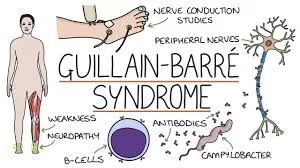Colon cancer, a formidable malignancy originating in the colon or rectum, has garnered significant attention in recent years due to a concerning trend: its increasing incidence among younger adults. Traditionally associated with older individuals, colon cancer diagnoses among the younger population have been on the rise, prompting healthcare experts to underscore the importance of awareness, prevention, and lifestyle modifications.
According to Dr. Manish Sharma, Senior Medical Oncologist at Action Cancer Hospital in New Delhi and Cancer Care Clinic Faridabad, external factors play a pivotal role in this surge of colon cancer cases among young adults. While hereditary predispositions contribute to some instances, lifestyle choices such as smoking, poor dietary habits, obesity, and excessive alcohol consumption are significant risk factors. Dr. Sharma emphasized the urgency of addressing these modifiable risk factors to stem the tide of colon cancer incidence among younger demographics.
Recognizing the signs and symptoms of colon cancer is paramount for early detection and treatment. Symptoms such as rectal bleeding, changes in bowel habits, abdominal pain, and unexplained weight loss should not be overlooked, especially in younger individuals where these indicators may be attributed to other causes. Proactive screening and heightened awareness can facilitate timely intervention, improving outcomes for affected individuals.
Dr. Sharma outlined several lifestyle modifications that can help mitigate the risk of colon cancer. Reducing consumption of red meat, particularly processed or burned meats, is advised due to their association with carcinogenic compounds. Plant-based proteins and lean protein sources like fish and chicken offer healthier alternatives. Additionally, limiting sugar intake, consuming adequate dietary fiber, and moderating alcohol consumption can significantly reduce the risk of colon cancer.
The multifaceted nature of the rising incidence of colon cancer among younger adults necessitates a collaborative effort from healthcare providers, policymakers, and the general public. By addressing lifestyle factors, enhancing awareness, and expanding access to screening and preventive services, stakeholders can work towards reversing this alarming trend and alleviating the burden of colon cancer on younger generations.
In conclusion, Dr. Manish Sharma emphasized the importance of proactive measures in combating colon cancer, stating, “Through concerted efforts and informed choices, we can strive towards a future where colon cancer no longer poses a significant threat to the health and well-being of younger individuals.”










